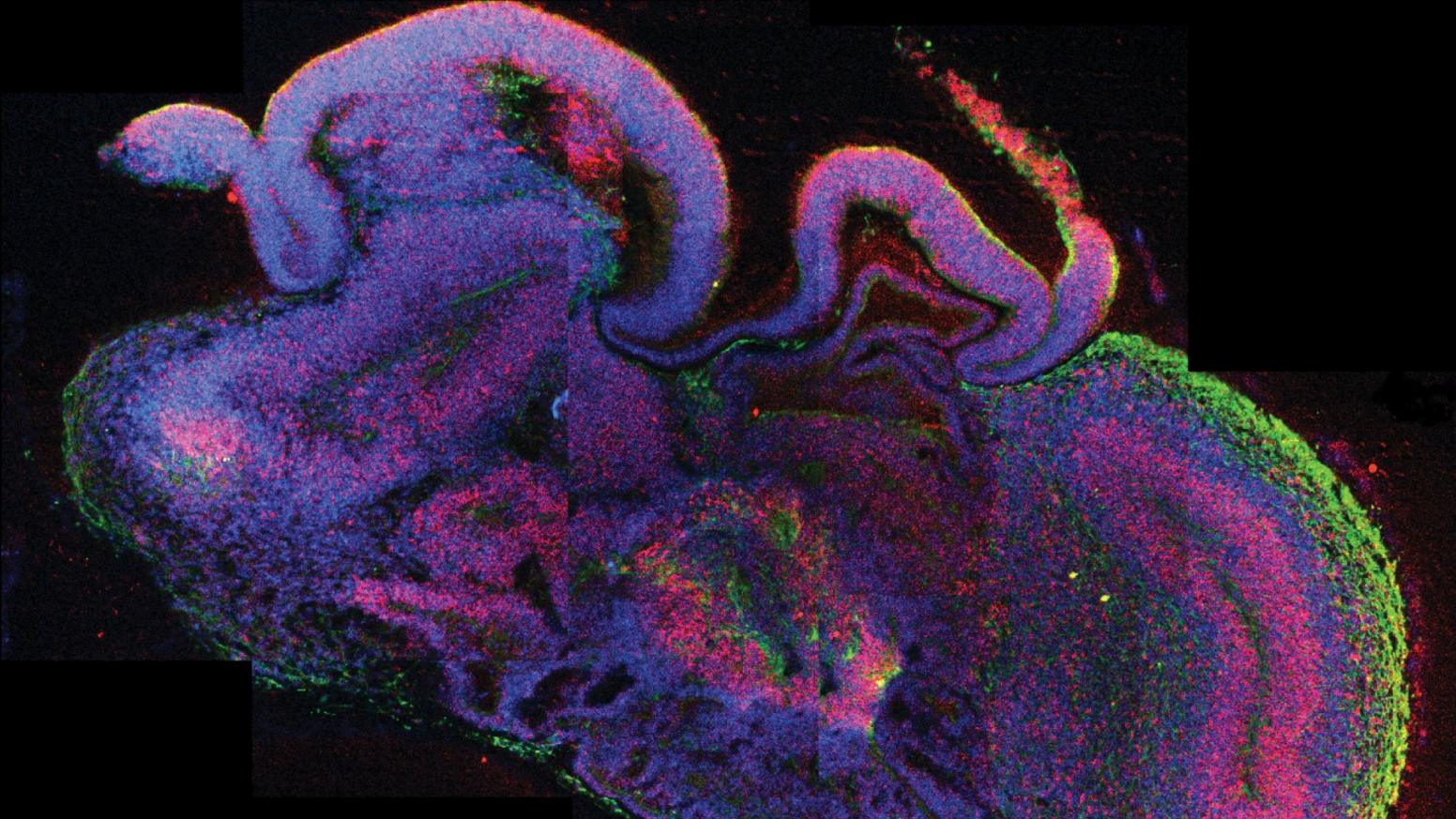The people hoping to continue to exist through technology
- Published
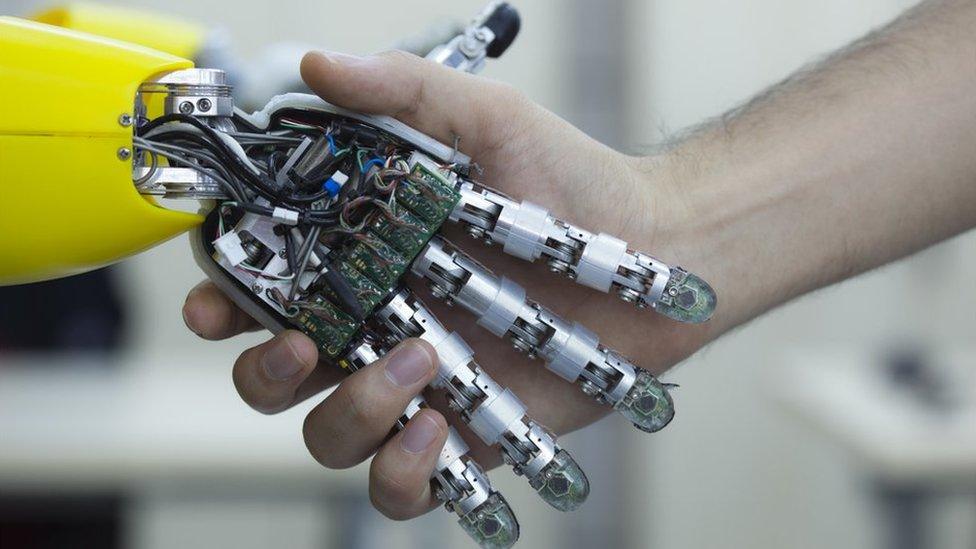
As technology advances, a group of people known as transhumanists are increasingly seeking ways to enable us to live on in new forms. How plausible are their ideas?
"We have this strange idea that dying is something we need to do. It's not - we'll look back and think of dying as something as barbaric as slavery," Dr Ben Goertzel explains.
He is one of the leading figures in transhumanism - a movement that believes in using technology to improve our intellectual, physical and psychological capacities.
For some members, including Dr Goertzel, this extends to the view that technology should one day enable us to live on in different ways.
"I think digital immortality is definitely going to happen. I hope it happens in my own lifetime," he tells the Victoria Derbyshire programme.
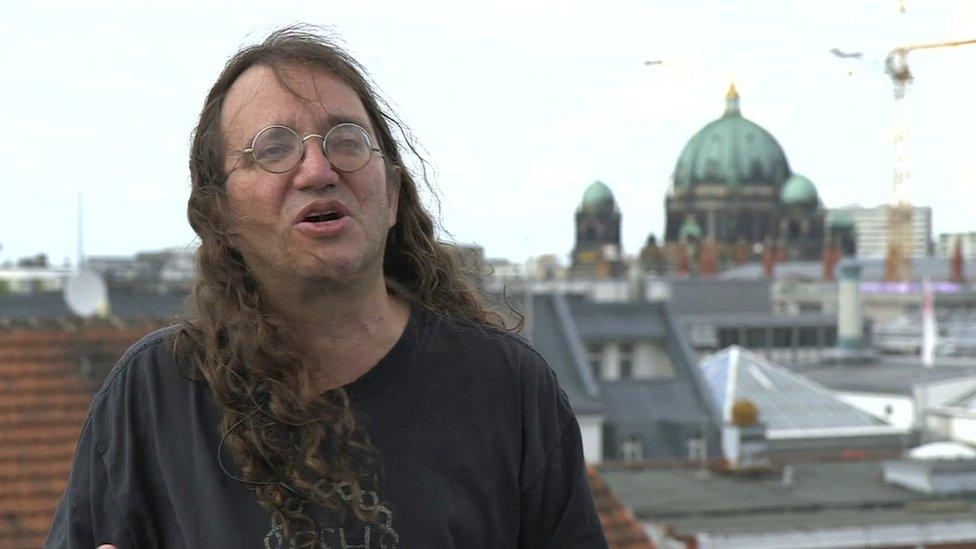
Dr Ben Goertzel believes we are soon to experience "radical technological change"
This belief forms one-third of the three "supers" - super longevity, super intelligence and super well-being - to which many transhumanists subscribe.
Dr Goertzel, for example, sees old age as a "disease" that needs to be eradicated, while British transhumanist Aubrey de Grey has established his own foundation, Sens, to help fund research into the use of regenerative medicine to treat age-related disease.
But these three principles can also lead to methods that are morally controversial.
Mind uploading, also known as whole brain emulation, is the hypothetical process of taking an exact copy of the mind - including memories and personality - and transferring it on to a computer-like device.
It may sound better suited to a science fiction novel than real life, but Dr Goetzel believes that it could one day be realised.
"The mind is a pattern of organisation, rather than... physical matter," he explains, suggesting information in the brain has the potential to be stored elsewhere.
It is unlikely to be made possible in the near future, if at all, but would potentially lead to our new minds being copied numerous times and theoretically placed in any type of body.
Some transhumanists have already designed prototypes for a future physical body into which our brains could be downloaded.
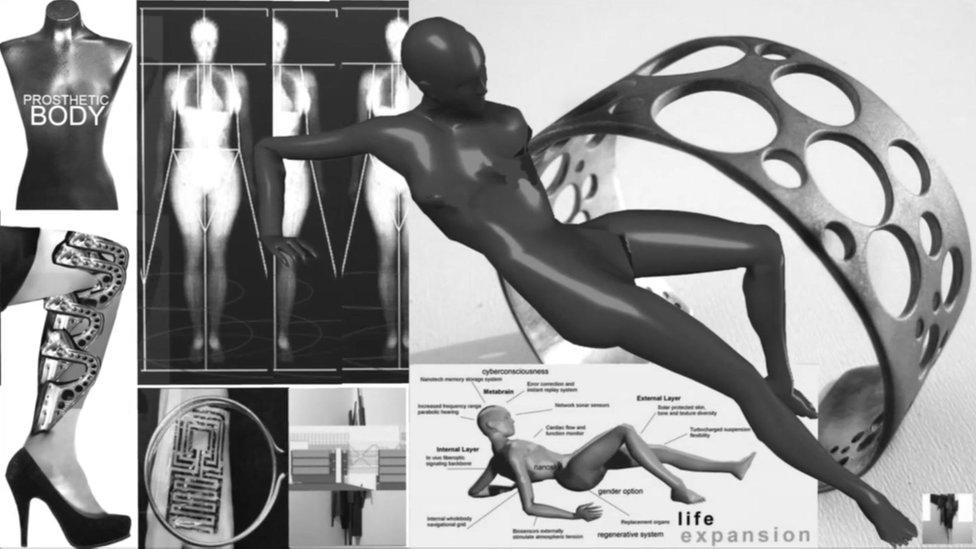
Prototypes for a future human exo-skeleton have already been envisaged
Mind uploading is, however, far from the only proposed technological route to immortalisation.
British scientist Kevin Warwick is known for being one of the world's first cyborgs - humans who have certain physical abilities controlled or enhanced by mechanical or electronic devices.
Cybernetics has seen many breakthroughs in recent years, including the development of advanced prosthetics - used to provide amputees with a better quality of life.
In 2002, Mr Warwick decided to undergo surgery himself, but for a different reason.
"I got 100 electrodes placed into my nervous system, to link it to a computer and the internet. That way I could control a robot hand thousands of miles away in the US while sitting in Britain moving my own hand," he explains.
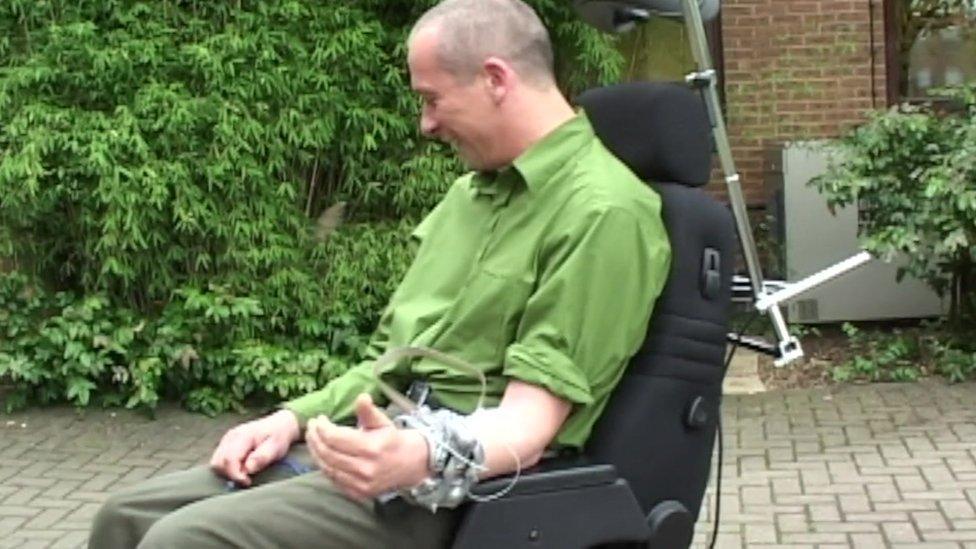
Kevin Warwick has been able to control a robot hand thousands of miles away, following the surgery
As a result of the electrodes, he adds, he was also able to experience what the robot hand was feeling. "Through electrical pulses in my brain I could feel how much force was being applied to the hand, as if it were my own."
Mr Warwick's wife has since undergone the same surgery, so their nervous systems could be linked together and effectively communicate. He says he was able to feel a pulse in the brain when his wife closed her hand.
He believes the technology will eventually lead to people being able to communicate "brain to brain" via a high-bandwidth network.
'Bleak future'
Not all transhumanists believe technology will develop in the same way. Their shared view, however, is that if we do not merge ourselves with technology, we run the risk of being taken over by it.
"If you want to stay in the future as a human, it's a very bleak future. If humans do exist, it will be in terms of being pets or servants," Mr Warwick suggests.
This, however, comes with ethical implications.
According to philosopher and transhumanist Dr Anders Sandberg, head of the University of Oxford's Future of Humanity Institute, it is possible to "imagine a society where the rich want to keep immortality for themselves".
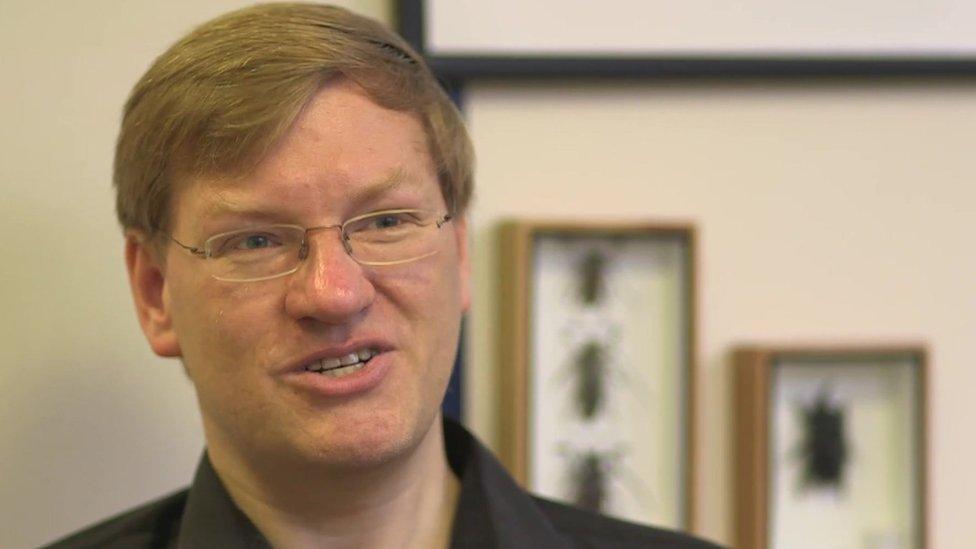
Dr Anders Sandberg believes the technological change envisaged by transhumanists should not be feared.
The structure of society would also be likely to change. As we increasingly outlive institutions, nations and organisations, he says, many would find it difficult to adapt.
But Dr Sandberg's overriding view is one of optimism. He believes we should not fear the changes transhumanists see taking place.
"You need to think of humans in the future as you would think of the apes that preceded us in the past. We don't mourn our ancestors, we are happy we have evolved. And that will be the case in the future."
Watch Benjamin Zand's full film on the Victoria Derbyshire website.
- Published28 August 2013
